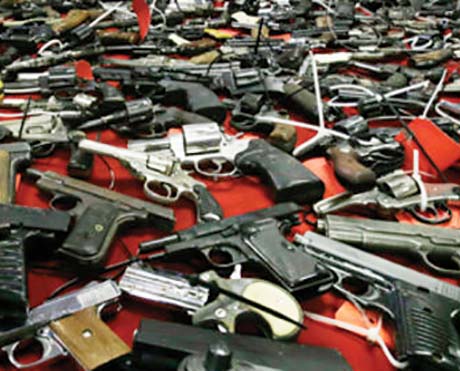
By Dave Workman
Editor-in-Chief
The CBC in Canada is reporting that the Trudeau government “is now coming under friendly fire” from a previous ally in its effort to mount a massive gun buyback program, apparently because the project may allow some military-style firearms to remain legal.
The gun control group PolyRemembers says the buyback, as currently designed, is “a waste of Canadians’ money.”
It’s an argument which may have some traction, considering that on this side of the border, gun buybacks have not demonstrated an ability to lower violent crime or suicide levels, according to The Trace, a pro-gun-control online publication financed by anti-gun billionaire Michael Bloomberg.
In an April 2023 report , The Trace acknowledged, “The most rigorous studies of gun buyback programs have found little empirical evidence to suggest that they reduce shootings, homicides, or suicides by any significant degree in either the short- or long-term.”
Long story short, gun buybacks—at least the kind done in the United States—are essentially all flash and no substance. They get coverage by local media and result in some guns being taken out of circulation, but often the kinds of guns being turned in are not the types of weapons used by criminals.
The Canadian gun control crowd wants to see a mandatory buyback modeled after the program in Australia in the mid-1990s following a mass shooting in Tasmania.
But this wasn’t a cooperative effort, as critics have branded such programs as “compensated confiscation.” Requiring people to surrender their guns in exchange for cash takes firearms from the wrong people and does not reduce crime.
The Canadian program was announced earlier this year, the CBC reported this past Spring. There is no Second Amendment in Canada, so gun ownership is not protected as it is here in the U.S. At the time, the CBC quoted an unidentified government source stated, “No one is rushing to participate in the program.”
According to the CBC report, a “second phase” of the program will get underway next spring, with the government focusing on some 1,500 different firearms and components.
But the misgivings declared by PolyRemembers may cause problems for the buyback. A spokesperson for the group, Nathalie Provost, was quoted by the CBC stating, “If our safety is important to politicians, we have to do this buyback program. But if we do it, we have to do it efficiently, not just for appearances. And right now, it’s just for appearances.”
That is not unlike what gun buyback critics here in the states contend. They may be good for a headline and possibly some broadcast news coverage, but in terms of actually attaining the desired goals, suffice to say the jury is still out.



